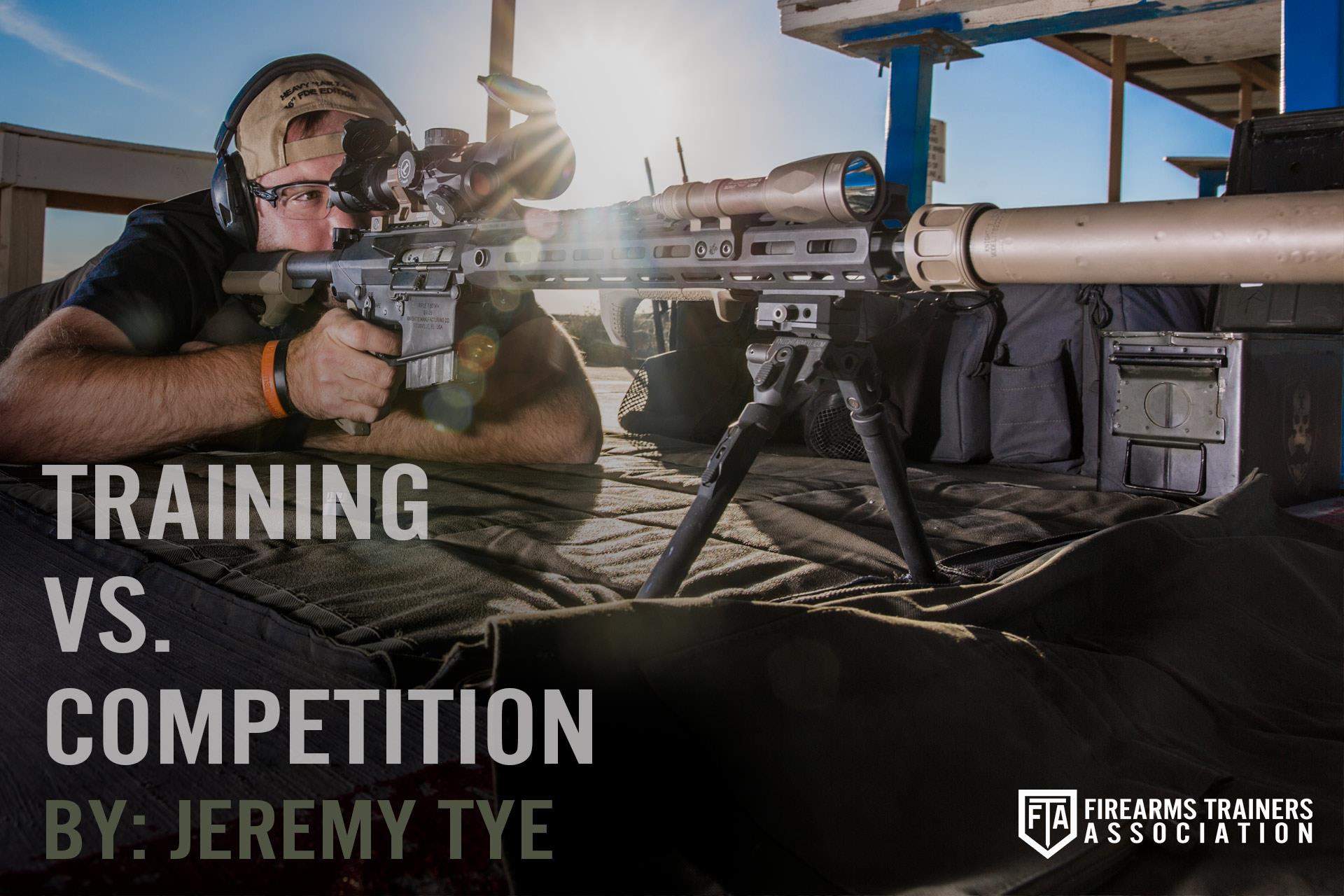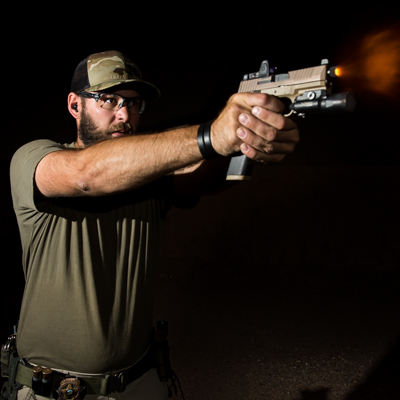
Posted on December 9, 2020
TRAINING VS. COMPETITION
TRAINING VS. COMPETITION
CCW Safe Industry Partner Jeremy Tye recently wrote an excellent series of articles for our sister company Firearms Trainers Association looking at Competition vs Training and what some of the benefits can be had by competing in matches. This is the first in that series:
If you follow me on social media, you know that I often post about my competitive match experiences. What I don’t post about often is my day job as a full-time LE firearms instructor. In my mind, my success as an instructor is in large part due to my successes, and more importantly my failures, in the competitive arena. To have this conversation, I have to put out the disclaimer that I am only focusing on firearms marksmanship and manipulation skills. The “tactics” that I use as a competitor during a stage are almost always in direct conflict with the “tactics” I would use in the real world. The skills that I use and refine as a competitor though generally do translate well into the real world. So, let’s just talk about the skills.
I break down the skills into three categories. Those are physical skills, equipment skills, and mental skills. Physical skills are pretty straightforward, I’m referencing trigger control, recoil control, target transitions, reloads and malfunction clearance, etc. Equipment skills is a bit more complex, these include support bags, tripods, bipods, optic manipulation, and how I can interface my firearm with whatever barricades or props are available. Mental skills encompass how to develop a solution to any particular shooting problem, the thought process that occurs when a shot is taken that does not hit the target, understanding how to take advantages of strengths while minimizing or mitigating weaknesses, etc.
The goal of just about all competitive events is to be faster and more accurate than anyone else. At the top levels of the shooting sports, competitors will go to great lengths to gain even the slightest advantage over their competition. For the guys (and gals) at the top of the sport, or those that make their living off of competitive shooting, they spend untold hours practicing and experimenting with different shooting techniques and equipment in order to figure out what works best for them.
As a fellow competitor, I can take advantage of all of the hard work and long hours they have put in simply by observing the way they shoot a stage and then discussing it with them afterwards. I have found that the vast majority of competitive shooters are extremely approachable and welcoming to others. As long as you approach a shooter at the right time, and with some respect, they are usually more than willing to talk about their techniques and performance, and what led them to decide that “that way” was the best way for them. They invest the time, and you reap the rewards. I have picked up many tips and tricks for physical and equipment skills just from talking with fellow shooters. Not everything that works for them will work for me, or you, but it just might work for one of my students in the future. The knowledge is valuable, even if it isn’t personally applicable.
Developing and refining mental skills is more of an individual exercise. My competitive experience has undoubtedly increased my ability to overcome equipment failures, poor initial stage planning, improper wind calls, etc. I have developed a thorough understanding of how I physically interface with my rifle or pistol and can make the correct decisions that play to my strengths while not exposing my weaknesses. I am able to bring back all of this knowledge and experience to my students as examples of what to do, and also what not to do, based upon my personal successes and failures. Honest evaluation of my failures, and what mistakes led to those failures, have been great teaching moments for me in classes. It helps me connect with my students and I think helps the students buy into the content I am presenting.
The most effective instructors have both an expansive knowledge base on the topic they are teaching, and also a vast experience base that they can draw from to supplement and reinforce the knowledge they are passing on. When it comes to teaching weapons manipulations and marksmanship skills, the fastest way to not only develop and refine your own skills, but also to build up that knowledge and experience base is by participating in competitive matches.
To read the remaining three articles in this series on the FTA website click here.
|
|
JEREMY TYEJeremy is an active duty LEO in the Southwest US with over ten years experience. He is currently working as a full time firearms instructor for a major metropolitan agency. His instructor certifications include firearms (patrol carbine/pistol/shotgun/SPR), defensive tactics, less-lethal, and MACTAC. He holds a Master classification in USPSA Single Stack, and has also competed in IDPA, Steel Challenge, 3-gun/Multigun/3GN, and various other outlaw events. Jeremy is currently concentrating on precision rifle matches and has earned several Top-LE awards at national-level events.
|
